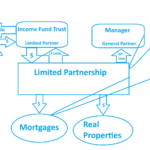The Future of Affordable Housing: Legal Perspectives for Developers

As the demand for affordable housing continues to rise across Canada, particularly in urban centres like Toronto, developers face increasing pressure to meet the needs of both current and future residents. While providing affordable housing presents significant challenges, understanding the legal landscape is crucial for developers looking to successfully navigate this complex sector. This blog explores key legal perspectives for developers in the affordable housing market and how they can position themselves for success.
1. The Growing Need for Affordable Housing
Canada is currently experiencing a housing crisis, with increasing home prices and rents making it difficult for many families to find affordable accommodation. In Toronto, where the population is rapidly growing, the need for affordable housing has reached critical levels. Government initiatives, including funding programs and policy shifts, are focused on supporting affordable housing development, yet developers must ensure they are aligned with these evolving priorities.
2. Navigating Zoning and Land Use Laws
One of the first legal considerations for developers is zoning and land use laws. These regulations determine how land can be used, and municipalities often have specific requirements for affordable housing projects. Developers must familiarize themselves with local zoning by-laws and identify areas where affordable housing is permitted. In some cases, municipalities may offer incentives for affordable housing, such as relaxed zoning restrictions, expedited permitting processes, or reduced development charges.
Developers should also be aware of inclusionary zoning policies, which may require a portion of new developments to be designated as affordable units. These policies are gaining traction in many urban centres as a means of integrating affordable housing into mixed-income communities.
3. Government Incentives and Subsidies
Governments at both the federal and provincial levels offer a variety of incentives to encourage the development of affordable housing. These incentives often take the form of grants, tax breaks, and subsidies, making it financially viable for developers to take on affordable housing projects.
For example, the Canada Mortgage and Housing Corporation (CMHC) provides financing for affordable housing initiatives through its National Housing Strategy. Developers can leverage these opportunities to reduce financial risks and access the necessary capital for their projects. However, to qualify for these programs, developers must ensure their projects meet specific criteria, including affordability thresholds and long-term rent controls.
4. Public-Private Partnerships (P3)
Public-private partnerships (P3) are increasingly seen as a viable solution for funding affordable housing projects. In a P3 arrangement, developers partner with government entities to share the costs and responsibilities of developing affordable housing. This can significantly reduce the financial burden on private developers and ensure the successful completion of large-scale projects.
For developers, entering a P3 agreement involves understanding the specific terms and conditions of the partnership, including timelines, financing structures, and the roles and obligations of each party. Legal guidance is essential in drafting and negotiating these complex contracts to ensure all parties are protected.
5. Addressing Environmental Regulations
Environmental sustainability is an increasingly important factor in housing development. As part of the broader societal push towards green building practices, developers must comply with environmental regulations that govern construction practices, materials, and energy use. These regulations can impact both the cost and timeline of affordable housing projects, so it’s important for developers to be proactive in addressing environmental concerns early in the planning stages.
Legal counsel can help ensure compliance with environmental laws, including building codes and energy-efficiency standards, while exploring opportunities to incorporate sustainability features that may also qualify for government incentives.
6. The Future of Affordable Housing
The future of affordable housing in Toronto and across Canada hinges on ongoing collaboration between developers, policymakers, and communities. As legal frameworks continue to evolve, developers must remain agile and adapt to changing policies, regulations, and incentives. By understanding the legal landscape and taking advantage of available resources, developers can contribute to meeting the growing need for affordable housing and create long-term value for communities.
In conclusion, the legal perspectives surrounding affordable housing are complex but full of opportunity. Developers must stay informed, collaborate with local authorities, and utilize available government programs to succeed in this essential sector.
To schedule a free consultation, contact the expert lawyers of Levy Zavet at 416-777-2244.


